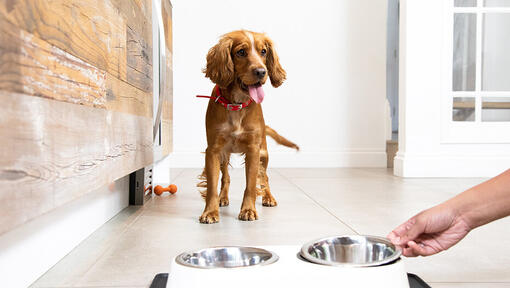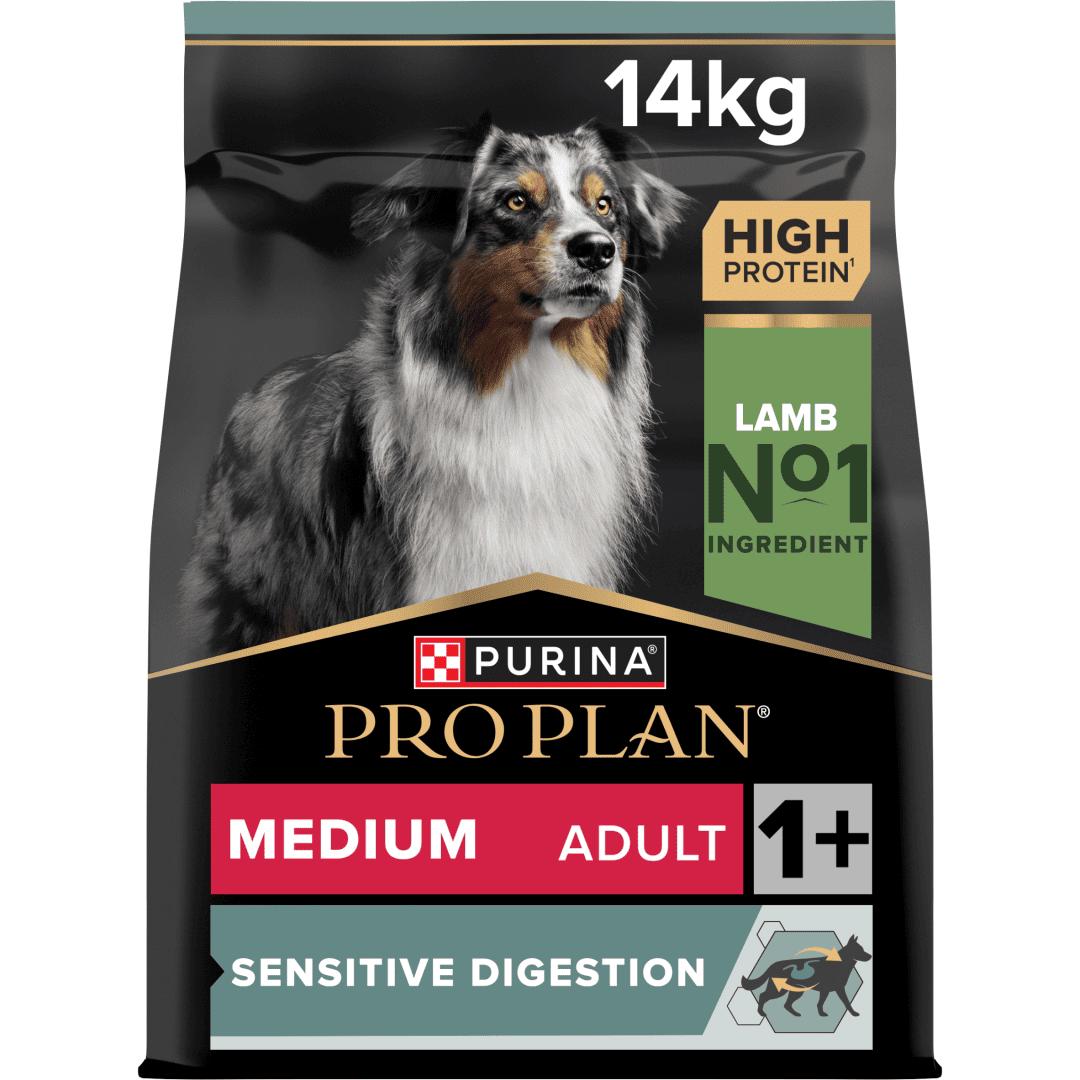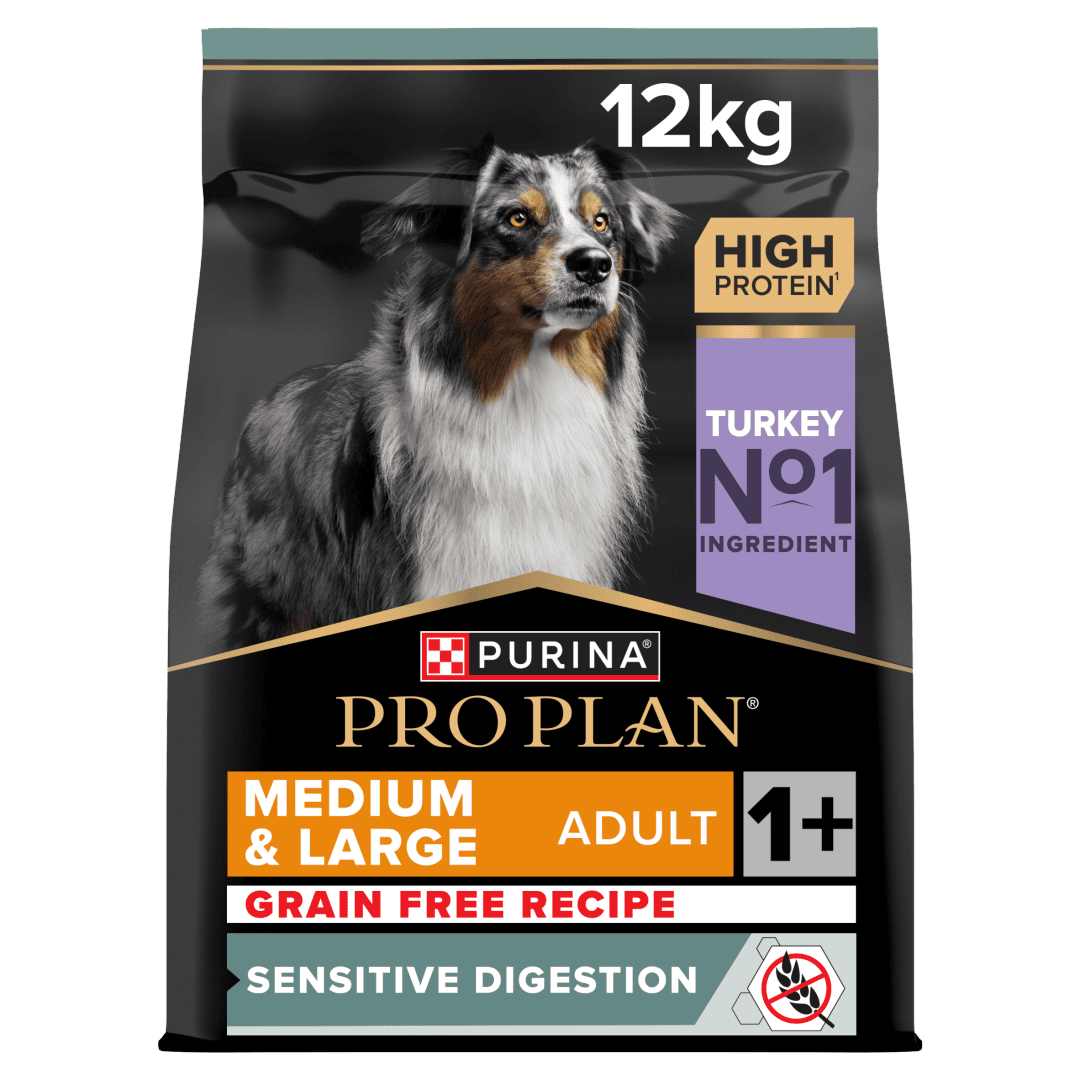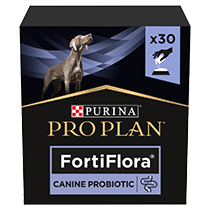


Is your dog eating happily, thriving, growing, and making the most of life? To keep them healthy, it’s crucial for their digestive system to be working at its best.
For some dogs dealing with sensitive digestion, this may mean finding a food that is especially formulated for this problem. Here’s everything you need to know about the canine digestive system in order to choose the right dog food for sensitive stomachs.
Why is healthy digestion so important?
The digestive system acts as a 24/7 safeguard for your dog. That’s because 70% of your pet’s immune cells are found in here, protecting their bodies from toxins and creating a barrier between them and the harmful microbes present in the outside world. The digestive system also has the crucial job of absorbing nutrients from food, converting them into energy, and eliminating anything indigestible.
How long does digestion take in dogs?
Depending on several factors, the average canine digestive system can take between 4 and 12 hours to fully process a meal. For example, giant breed dogs can take up to almost 2 days to digest food, while smaller dogs and puppies will take only around 4 hours.
The type of food consumed also plays a role in the process, given that more liquid foods take less time for them to digest. If your pet is displaying signs of a sensitive stomach and seems to be taking a longer or shorter time than normal to process its meals, it could just be a matter of feeding them the right dog food for sensitive stomachs. However, while it’s vital for their well-being to ensure your pet follows a healthy diet, poor digestion can have other causes which will require different treatments.
What causes sensitive digestion in dogs?
As omnivores, most dogs can gobble down any type of food with no issues. However, if you suspect your pet might have a sensitive stomach, one possible reason could be a food allergy or intolerance. A simple food trial with an elimination diet should help you narrow down the exact cause.
A bad reaction to a new diet might also be a reason for an upset stomach. Whenever you change your dog’s diet, it’s best to do it gradually because any quick changes can lead to temporary upsets. Even if you’re feeding them dog food for sensitive stomachs, you should still start by gradually changing their food.
A sensitive stomach could also just be chalked up to your dog’s genetic makeup. It’s not uncommon for dogs to inherit afflictions from their parents — although it is undoubtedly very unlucky. In this case, it’s perfectly normal for your pet to show symptoms at a later time in his life so, don’t rule out this possibility and make sure to run the tests recommended by your vet.
Another cause could be overeating. We all know dogs are among the most impatient animals when it comes to eating and so they tend to eat very fast and consume more than needed. Ingesting large quantities of food in a short amount of time will often result in an upset stomach as it puts more demand on their digestive systems.
Lastly, a sensitive stomach could also be triggered by worms or bacterial infections. In this case, a veterinarian is the most suitable person to assess the situation and recommend a treatment.
Signs of a sensitive canine digestive system
If you think your dog may have sensitive digestion, look out for these symptoms:
- Their stools are frequently soft and poorly formed. Occasional diarrhoea, flatulence, or loose stools are a natural sign of microflora imbalances. However, when these symptoms are more frequent, they might indicate a food intolerance or allergy. If you’re concerned, visit your vet to get your pet examined.
- Vomiting could be another clue. If this happens too often, it’s a sure sign that there’s more to the problem than just a temporary upset stomach.
How often should you feed your dog?
As a general rule, dogs should have two main meals per day, one in the morning and the other after about 12 hours, in the evening. It’s a well-known fact that dogs can get quite impatient when it comes to their meals, but what you might not be aware of is that their stomachs can become hyper acidic if more than 12 hours elapse between eating.
However, depending on your routine, you could also go for a breakfast, lunch, and dinner schedule. Of course, you can also feed them treats during the day, but be careful not to overdo it — no matter how cute their puppy eyes are!
Creating a meal schedule works best for your pet’s sensitive stomach so regardless of when you choose to feed him, make sure you stick to the schedule. This way they’ll also know when to expect their food and won’t be left feeling sick because of an upset stomach.
What is the best dog food for sensitive stomachs?
If you think your dog may have sensitive digestion, ask your vet for advice. They may recommend switching to a diet that is especially formulated to support digestive health, such as PURINA® PRO PLAN® with OPTIDIGEST.
This diet contains OPTIDIGEST, a special combination of nutrients that support healthy digestion. The diet is made with highly digestible ingredients that ease the digestive process, as well as bentonite, a natural clay that helps improve stool quality.
You can find out more about PURINA® PRO PLAN® with OPTIDIGEST here.

More articles by Pro Plan:















